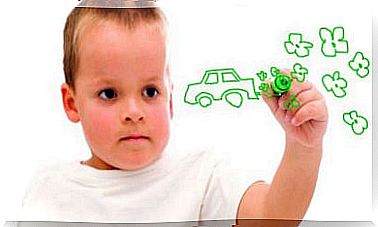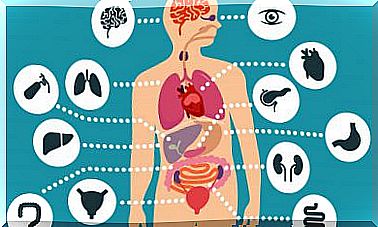Depression In Stay-at-home Mothers

It is not easy to be a homemaker, even if society does not value herself enough. In addition, there is, and is increasingly on the rise, depression in stay-at-home mothers. This is because they feel loneliness, isolation, and loss of purpose in life. This phenomenon affects more than a quarter of mothers (and fathers) who do not work outside the home in a paid manner.
Stay-at-home moms depression
Before becoming a mother, it is possible that you were working in a field that you liked or that you filled your time with activities that had nothing to do with running washing machines all the time or cooking. Your passion and your work were recognized in the “real” world, outside your home.
Although, the moment you became a mother, you happened to stay home to take care of your little baby. This may have made you feel like your identity has been completely changed by one word: “mom . ” You may feel confused, angry, sad … and alone.

You may feel like you’re struggling every day to figure out where you fit in the world right now. Your dreams and goals continue to be fulfilled in your mind, but not in your reality. So you may still be thinking of ways you can make it work while raising your kids, but it’s not easy.
Being a housewife is exhausting
As if that weren’t enough, being a homemaker is exhausting. You spend your days preparing lunches, taking the children to school or extracurricular activities, entertaining and taking care of your baby, doing the laundry, preparing the food, cleaning the house … The list is endless, but you feel unsatisfactory.
According to a 2012 Gallup study, which included more than 60,000 American women, stay-at-home mothers reported feeling more sadness, stress, anger, worry, and depression than employed mothers.
The survey also found that stay-at-home mothers don’t feel as many happy emotions. They smile less, learn less, and experience decreased enjoyment of life in general.
The stigma around stay-at-home moms depression
Stay-at-home mothers (and fathers) do not want to share their complaints because they feel that society will accuse them of being ungrateful. For many, staying home is like a “gift” to just a lucky few who can stay home all day without having to go to work because they can earn income for the family in other ways, such as work from home. partner, an inheritance, rental income, etc.
Some people may even claim that they have an “easy” and “stress free” life, since their spouse has a salary large enough to support it and can share every little milestone with their child.
Mothers who appear on Instagram or other social networks do not help either, because they show a reality in their images that has little to do with the truth.
It seems that being home is easy and fun, but many mothers don’t feel that way. The stigma of stay-at-home mothers can leave you feeling resentful and misunderstood. You may even feel guilty for the negative feelings you have, but it should not be like that.
Do what makes you feel better
It is important that if you feel that you must go to work, you do so, even part-time. However, if you want or need to stay home, there are ways to overcome this emotionally limiting depression.

You can talk to a friend, keep a journal, join support groups, schedule dates with friends, go to dinners, work toward goals (like playing sports for a marathon), etc. Do what makes you feel good about yourself. Having something to look forward to can help you get out of the rut.
Find free time for yourself
You also deserve some free time. Allow your partner or a babysitter to take care of your child while you enjoy uninterrupted time to yourself. This can leave you feeling refreshed, rejuvenated, and a little more ready to tackle motherhood and homemaker chores.
If depression is affecting your daily life or if you feel that it is too much for you to control, do not hesitate to consult a professional. Depending on the severity of your symptoms, you may be recommended psychotherapy, support groups, or antidepressant medications. Remember the importance of taking care of yourself in order to take good care of your family and children.










